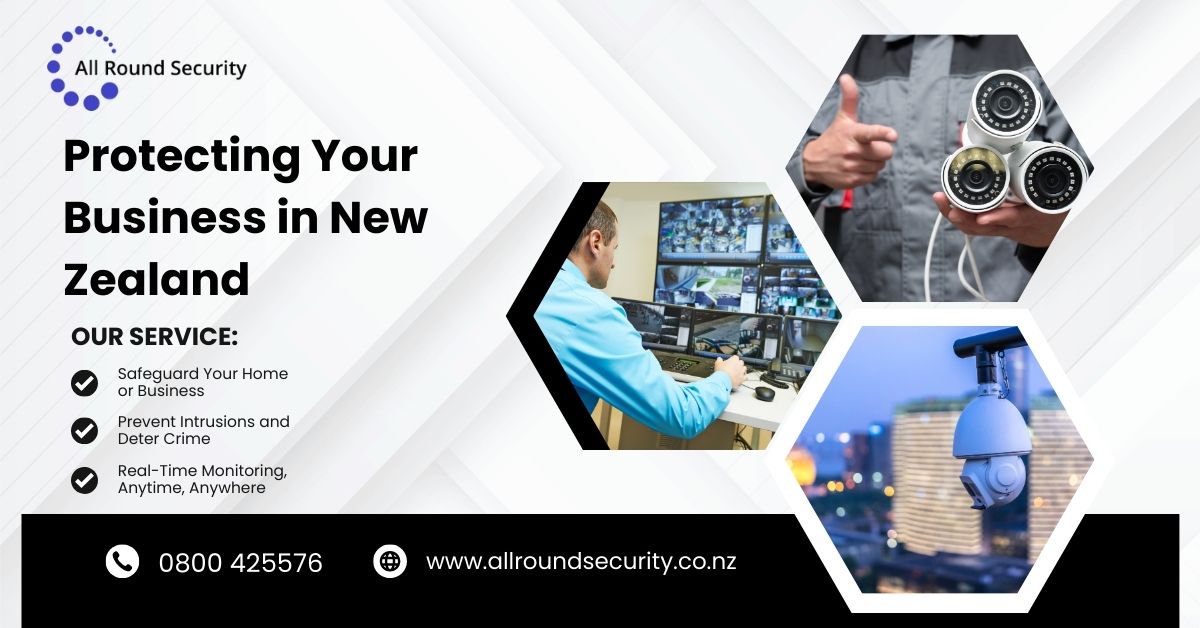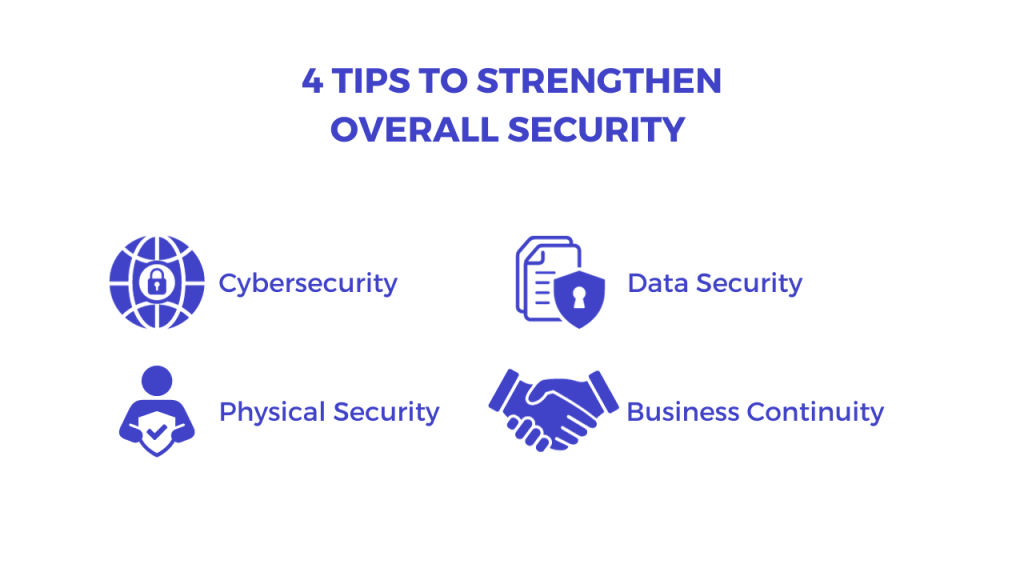Have you ever felt that nervous knot in your stomach when you leave your business unattended? Rest assured, you're not alone.
The importance of commercial security in today's rapidly changing world cannot be overstated, and New Zealand is no exception.
According to recent surveys, there has been a 5% increase in business burglaries nationwide, with small and medium-sized businesses being particularly vulnerable. Whether you own a bustling Auckland café or a quaint Dunedin bookstore, protecting your assets and employees is important.
In this blog, we'll take a look at commercial surveillance camera system installation solutions tailored for businesses. Let's start with a crucial question: How secure is your business?

Let's face it: New Zealand is not immune to violence. Businesses encounter various security concerns, ranging from minor theft to advanced cyberattacks. Here are a few of the most common:
Given the distinct characteristics and challenges of businesses in New Zealand, customising commercial CCTV camera installation solutions is essential. The country's geographical diversity, various business types, and legislative specifics need a unique approach to security. Custom solutions are tailored to unique business needs, providing maximum coverage and effectiveness.
To strengthen overall security, businesses must implement comprehensive security measures across multiple domains:

Also read: Common Security Camera Mistakes to Avoid
Visible security cameras work as powerful deterrents, discouraging potential threats and illegal activity by sending a clear message that the premises are being monitored. This deterrence's proactive nature dramatically minimises the danger of break-ins, theft, and other illegal acts, providing a safer atmosphere for both staff and customers.
Aside from deterrence, these security cameras serve an important role in preventing crises from escalating by collecting and documenting events, allowing for early notice and action to resolve vulnerabilities and minimise possible losses.
For businesses looking for proper solutions, commercial surveillance camera system installation ensures that specific security needs are met, from theft prevention to operational monitoring.
Commercial security cameras provide real-time surveillance around the clock, increasing situational awareness and allowing for quick responses to shifting events. This promptness not only improves security but also operational efficiency and overall business management.
In the unfortunate event of an incident, the recorded footage becomes invaluable for investigating, identifying perpetrators, and improving incident response strategies. Surveillance helps law enforcement and internal security teams resolve issues, sentence offenders, and implement preventive measures.
Choosing the right combination of resolution and analytics features depends on your specific needs and budget. High-resolution cameras provide greater detail, while analytics and artificial intelligence (AI) provide proactive intelligence for your security system. Consulting with a security expert can assist you in determining the best solution for your company.
Also read: Wireless Vs. Wired Security Cameras: Pros and Cons
Choosing the right security cameras for your business depends on whether you need them for indoor or outdoor surveillance. Each environment has its own set of requirements and concerns.
Indoor surveillance cameras are critical for organisations because they provide a full view of internal operations. They deter internal threats, monitor employee productivity, and enhance workplace safety by preventing unauthorised access and theft. These cameras play a vital role in investigating workplace incidents, providing valuable insights for overall operational efficiency.
While the benefits of indoor monitoring are significant, it is critical to navigate privacy concerns properly. Communicate the presence of cameras clearly, emphasising security enhancement above invasive surveillance. Adhering to privacy standards and implementing technologies such as video masking for sensitive areas creates a balance, establishing a trusting and transparent workplace environment.
Outdoor security cameras are essential for protecting business perimeters. They capture large outdoor areas with high-resolution images, night vision, and wide-angle lenses. The integration of motion detection and analytics improves their effectiveness by alerting them to potential dangers. For investigations, remote access and cloud storage offer real-time monitoring and footage retrieval.
Knowing these two types of security cameras is the first step. Check out these two blogs for more insights to help you with your security camera concerns about how to choose the right security camera and whether to install it DIY or professionally.
When choosing commercial security cameras, businesses must consider factors like size, layout, and industry to meet specific needs. Tailoring camera systems assures alignment with operational dynamics—for example, retail may prioritise facial recognition, whereas manufacturing may prioritise production line monitoring.
Remember, customisation is important for optimising coverage and maximising ROI by directly addressing unique business concerns.
It is recommended that businesses explore security camera choices at varying price ranges to accommodate budgetary restraints. When weighing prices, it's essential to examine the usefulness of the chosen system in achieving certain security requirements.
It is important to emphasise the long-term importance of investing in superior solutions. While the initial expenditures may be greater, reliable, durable cameras contribute to improved security and lower maintenance costs, resulting in a cost-effective and long-term security strategy.
Future commercial security relies on AI-driven analytics for accurate threat detection, facial recognition, and real-time breach prevention. Cloud solutions provide scalability, flexibility, and remote access, whereas IoT devices improve integrated security coverage. Biometric authentication, such as fingerprint and iris scanning, provides an additional layer of identification verification.
These advancements redefine commercial security by improving accuracy, reducing false alarms, and fostering a more interconnected and proactive approach. Cloud solutions improve remote management, while biometrics improve access control. The advancement of technology promises safer settings as well as better risk mitigation.
In conclusion, commercial security cameras are indispensable assets for businesses, offering a range of benefits. They work as effective deterrents, deterring possible threats and criminal activity. Real-time monitoring capabilities improve situational awareness and enable quick incident response.
Indoor and outdoor surveillance cameras cover several facets of security, ensuring complete coverage. Furthermore, future technological advancements promise even more complex features, increasing the effectiveness of commercial security systems.
We hope this blog has shed some light on the world of commercial security cameras in New Zealand. Remember, investing in a tailored business security cameras installation system will enhance your security infrastructure and provide peace of mind.




